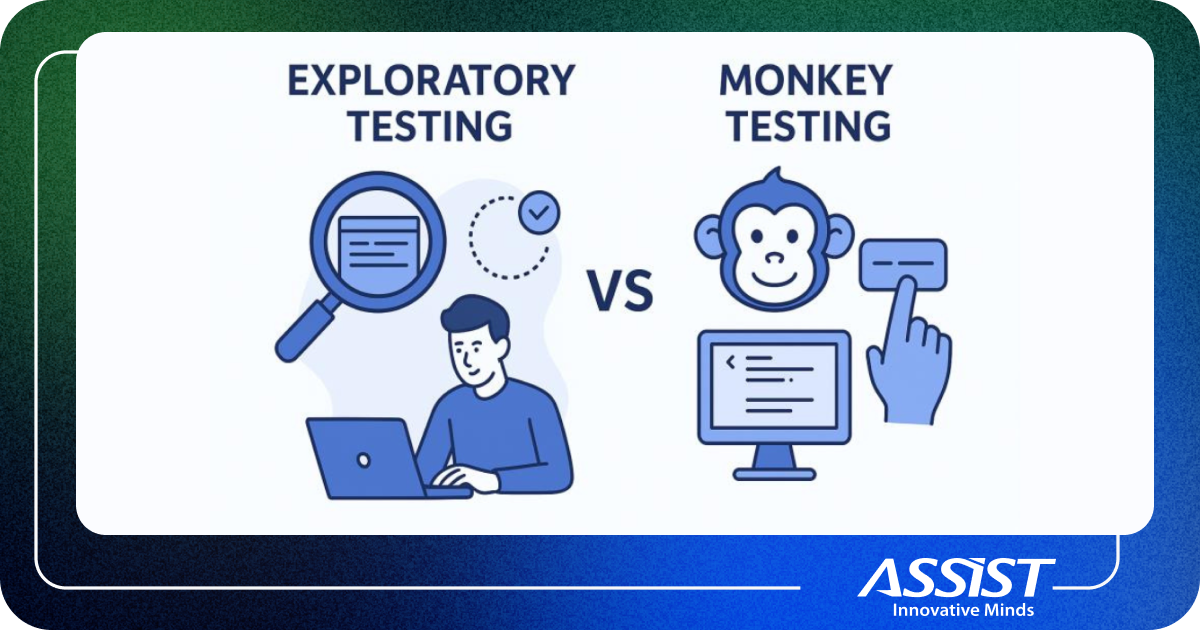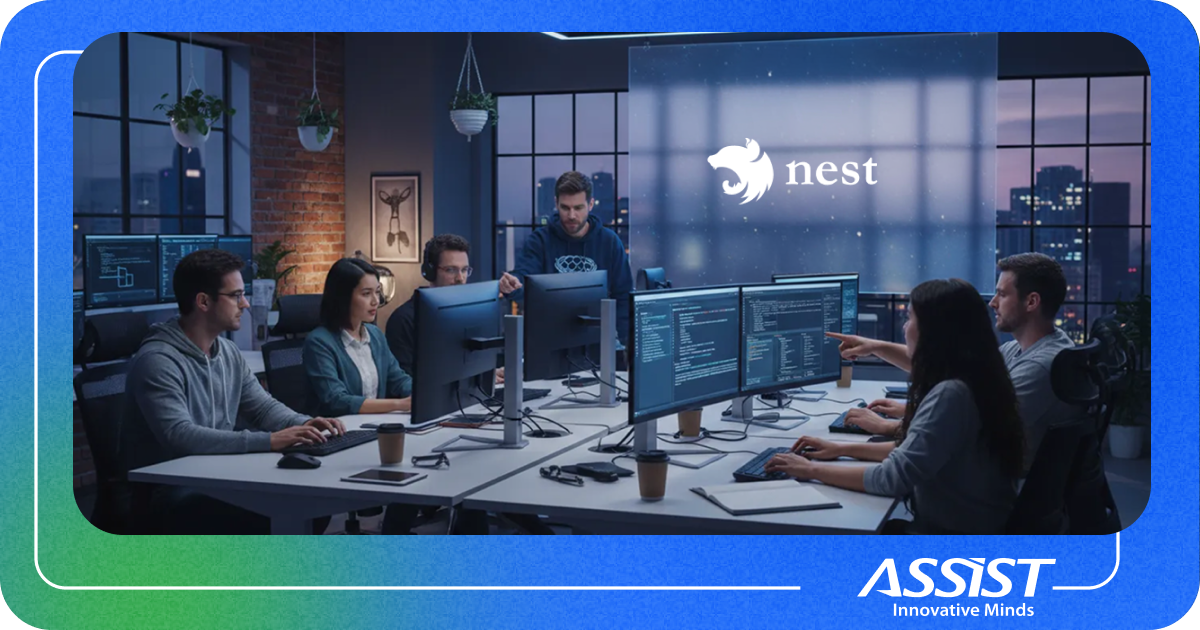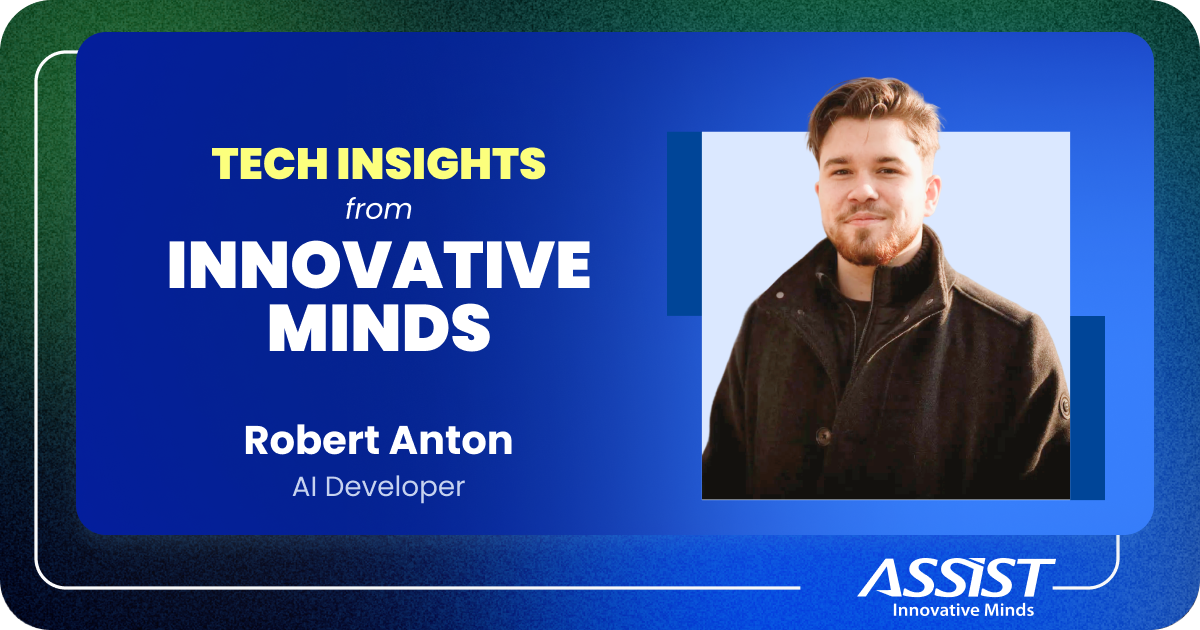Tech Insights from Innovative Minds: Alexandra Ursu, Head of Project Management

Welcome to Part III of Tech Insights from Innovative Minds, featuring Alexandra Ursu, Head of Project Management at ASSIST Software. This month, we also celebrate a noteworthy milestone: Alexandra's 10th work anniversary with us. Over the past decade, her contributions have been nothing short of inspiring.
Alexandra brings more than experience managing timelines and deliverables; she's all about helping her team grow and succeed. Her people-first approach creates an environment where each team member gets the needed support to build confidence and skills. Her philosophy is simple: when the team succeeds, the projects follow.

Let's explore some of Alexandra's work through her responses to the following questions:
We use Agile and rolling wave planning to plan small batches of features and implement regular feedback loops. This approach allows for flexibility and quick adjustments in response to changing conditions. Additionally, we have documented processes for handling risks, with contingency plans for the most critical ones. However, adaptability is essential in these projects and our industry.
A project manager should inspire and motivate. Even though you may have sufficient technical knowledge, if you don't inspire team members to follow you, it's harder to foster a positive team atmosphere, and you may end up micromanaging. Strong communication skills and empathy are essential. You also need to embrace conflicts and challenges, as much of the role involves facilitating solutions to various problems: Without problems, we don't have projects.
AI is pushing us to be more agile than ever, but there are a few key practices we focus on. In our team and the industry as a whole, we maintain a continuous learning mindset: technologies are constantly evolving, libraries are frequently upgraded, frameworks are regularly updated based on market feedback, and client needs are always changing. We all need to keep up with this new information. By fostering our mindset to embrace learning and improvement, AI is seen as another technology to be integrated into our processes. Of course, this introduces additional risks that must be carefully considered when planning features. We learn from failures and see them as opportunities by understanding the limitations of the AI technologies.
To maintain strong communication with any project stakeholder, it's important to have a well-defined stakeholder analysis and communication plan.
Deep down, all people share basic needs that must be met. Beyond that, there are desires and needs influenced by culture that every project manager should understand and strive to fulfill. When these aspects are documented in initial project planning, you'll have a clear understanding of your team, allowing you to tailor conversations based on each stakeholder's unique perspective. To be able to do that, you must be curious about different cultures and particularities but also use simple, clear language when communicating project information.
Innovation can take many forms. Of course, focusing on using an eye-catching technology stack or working with businesses that drive innovation is tempting. When doing so, it's important to align new ideas and technologies with the client's actual needs, goals, and pain points through regular communication, active listening, and feedback. This approach helps ensure that innovative solutions are relevant and valuable to the client. It's equally important to innovate through solutions, non-functional features, and optimizations when working with standard features or traditional business ideas.
Planning and Monitoring! There is the law of the 5 P's: 'Proper preparation prevents poor performance.' This principle remains valid in all circumstances and at every management level, including time and budget management. Personally, I am a visual person, and I like to use charts, roadmaps, and other visual aids. I usually set up shorter milestones and checkpoints to compare actual progress and financial performance against the baselines, allowing me to identify any discrepancies. However, the short answer is that our go-to strategy is to conduct regular checkpoints to monitor and analyze current progress and adjust based on our findings.
Product Management is the unseen backbone of successful software projects, bridging the client's needs with the technical team's abilities. At ASSIST Software, Alexandra and her team ensure that project goals are clear, achievable, and aligned with expectations from start to finish. This role is essential for meeting timelines and budgets.
Alexandra's strength as a project manager lies in her ability to keep things practical and focused. She listens closely to pain points and needs and then translates them into actionable steps. Her approach ensures that projects stay on course without unnecessary complexity or miscommunication, making her a trusted leader with impressive results.
After a decade of dedication, Alexandra has become an irreplaceable part of ASSIST Software, driving projects forward while building a team ready for any challenge. We're proud to celebrate this milestone with her and look forward to all the successes still ahead!
Thank you for making it to the end of the article, and stay tuned for the next edition, where we'll explore new perspectives in the IT industry.
- Read the previous part of Tech Insights from Innovative Minds featuring Remus Baltariu, Head of Product Design.





